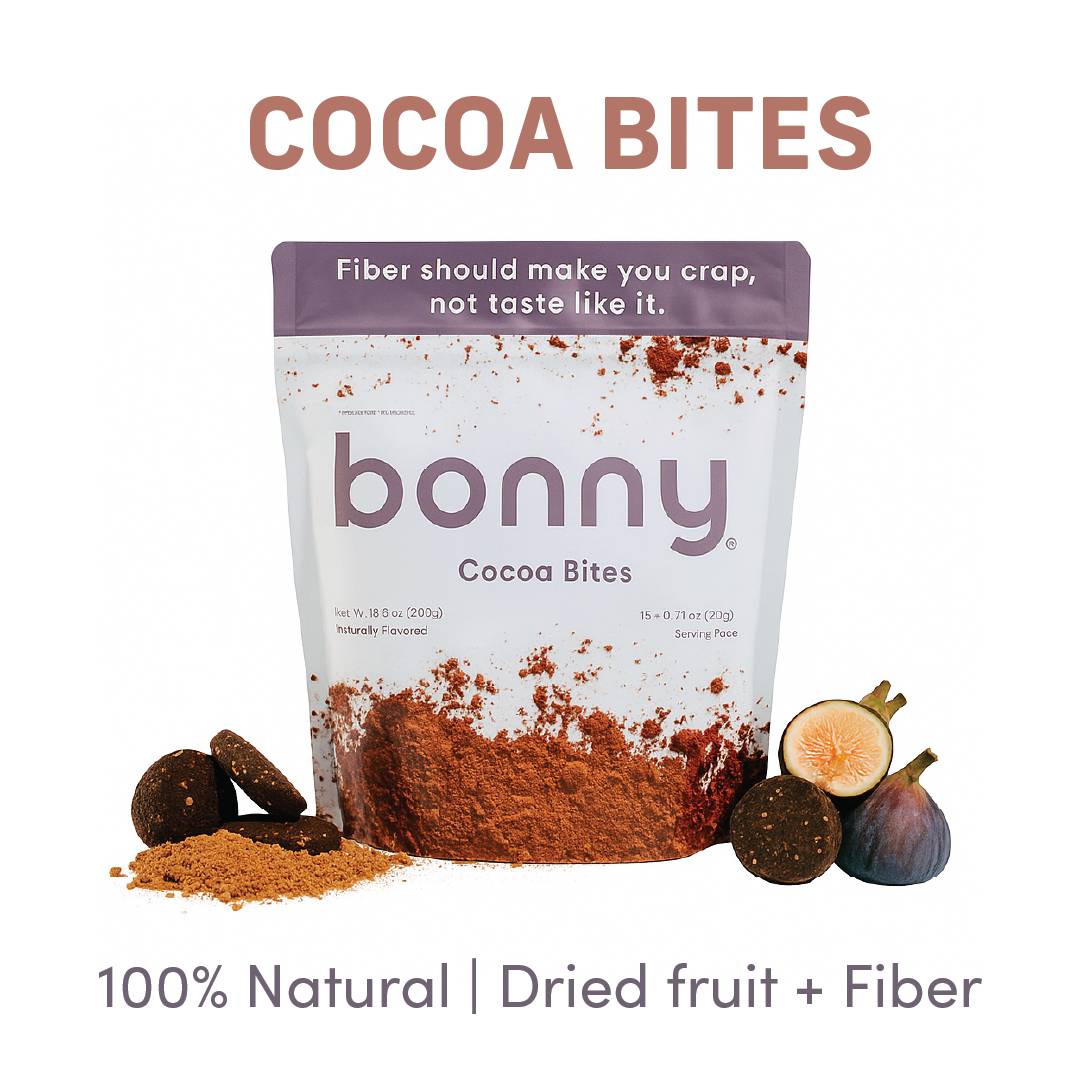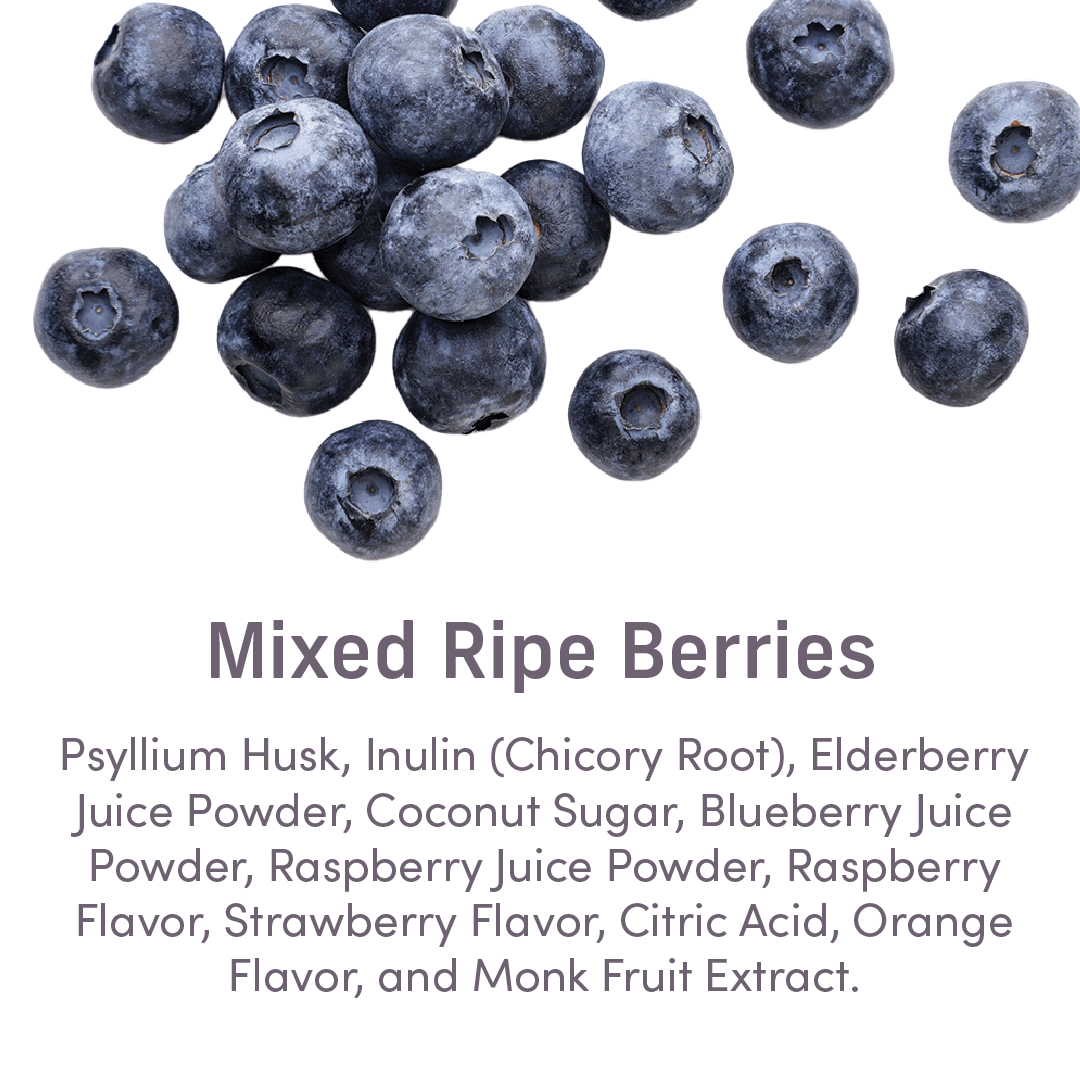Constipation is a common side effect of the ketogenic diet, especially during the first few weeks of starting Keto. Why you may ask? It is because the diet is low in fiber (you know are favorite f-word), as fiber is mostly found in carb-rich foods such as fruits, vegetables, and grains, which are restricted on the ketogenic diet. Read on to learn how you can still get your fiber and embrace Keto with a fiber supplement like Bonny.
What is Keto?

ABC Network / Via media.giphy.com
The ketogenic diet, or keto diet, is a high-fat, low-carbohydrate diet that is intended to induce a state of ketosis in the body. When following a keto diet, the body is forced to break down fats into molecules called ketones, which can be used for energy instead of carbohydrates.
Reasons For Constipation on Keto:
Not Enough Fiber
As mentioned, the ketogenic diet is low in fiber, which is important for maintaining regular bowel movements. Without enough fiber, the stool can become hard and difficult to pass. Think hard pellets and long toilet strain. We have a deep dive on constipation here.
Dehydration
The ketogenic diet may also lead to dehydration, as the body produces ketones, which can cause an increase in urine production and fluid loss. Dehydration can contribute to constipation. We love water in general because its amazing and helps fiber do its job in your gut.
Changes in Gut Bacteria
The ketogenic diet may also alter the composition of gut bacteria, which can affect bowel movements. The gut microbiome, which is the community of bacteria and other microorganisms living in the digestive tract, plays a significant role in health and can be influenced by a variety of factors, including diet.
Studies have shown that the composition of the gut microbiome can be affected by changes in diet, and some research suggests that the keto diet may alter the gut microbiome. However, the specific changes that occur and their potential effects on health are not yet fully understood and more research is needed to determine the long-term impacts of the keto diet on the gut microbiome.
To prevent constipation on the ketogenic diet, it is important to drink plenty of water and other fluids to stay hydrated.
Low-Carb, High-Fiber Foods

A Magical Mess Via media.giphy.com
Look to the following to increase your intake of low-carb, high-fiber foods.
-
Leafy greens: Leafy greens such as spinach, kale, and arugula are high in fiber and low in carbs. They can be eaten raw in salads or cooked as a side dish.
-
Nuts and seeds: Nuts and seeds such as almonds, chia seeds, and flaxseeds are high in fiber and can be eaten as a snack or added to recipes.
-
Avocado: Avocado is a good source of fiber and can be used as a spread on sandwiches or added to salads and other dishes.
-
Berries: Berries such as raspberries, blackberries, and strawberries are high in fiber and can be eaten as a snack or added to recipes.
-
Cruciferous vegetables: Cruciferous vegetables such as broccoli, cauliflower, and Brussels sprouts are high in fiber and can be eaten cooked or raw in salads.
-
Zucchini: Zucchini is a low-carb, high-fiber vegetable that can be used in a variety of dishes, such as zucchini noodles or baked into bread.
We get it though, getting enough fiber via diet alone, especially on Keto, can be challenging. Luckily we made a 100% natural, plant-based fiber supplement that tastes amazing and makes you poop.
Please note that these sources are provided for informational purposes only and should not be taken as medical advice. It is always important to consult with a healthcare professional before making any changes to your diet or lifestyle.
Bonny for Constipation on Keto
Bonny is an all-natural fiber powder supplement that helps you poop especially if you are constipated on Keto. It contains a combination of psyllium husk and prebiotic inulin, which supports gut health.
Each serving of Bonny provides 17% or more of the daily recommended intake of fiber. To use Bonny, simply add one tablespoon of the powder to a glass of water and stir until the powder is fully dissolved.
Bonny is available in delicious flavors like Mixed Ripe Berries and is vegan, gluten-free, and fab. Your butt and gut will thank you.
As always, we wish you glorious poops!
References:
Paoli, A., Bianco, A., Damiani, E., Bosco, G. (2015). Ketogenic diet for obesity: friend or foe? International Journal of Environmental Research and Public Health, 12(2), 2092-2107.
Kossoff, E. H., Zupec-Kania, B. A., Amark, P. E., Ballaban-Gil, K. R., Bergqvist, A. G., Blackford, R., ... & Wilder, R. P. (2009). Optimal clinical management of children receiving the ketogenic diet: recommendations of the International Ketogenic Diet Study Group. Epilepsia, 50(2), 304-317.
Nutrients in 2018: "Ketogenic Diets and the Microbiome: Emerging Evidence for Metabolic Benefits"
Nutrients in 2020: "The Ketogenic diet and the gut microbiome: A review"
Science in 2017: "Metagenomic analysis of the human gut microbiome during and after a dietary change to a low carbohydrate diet"




